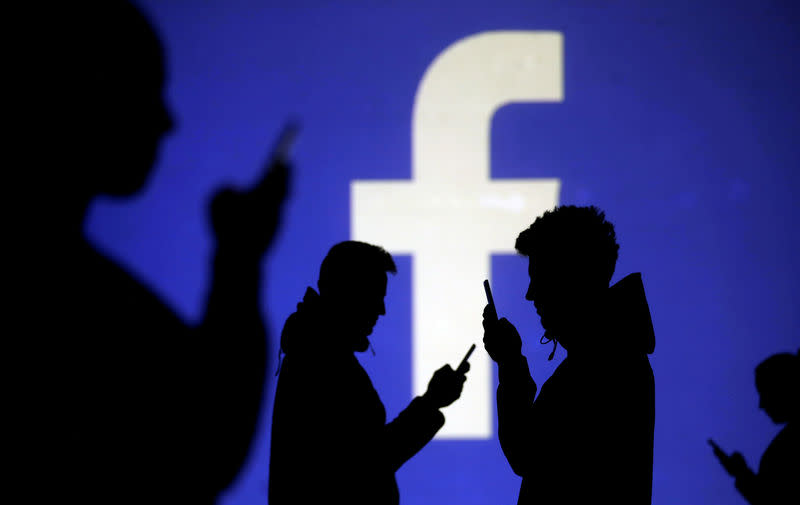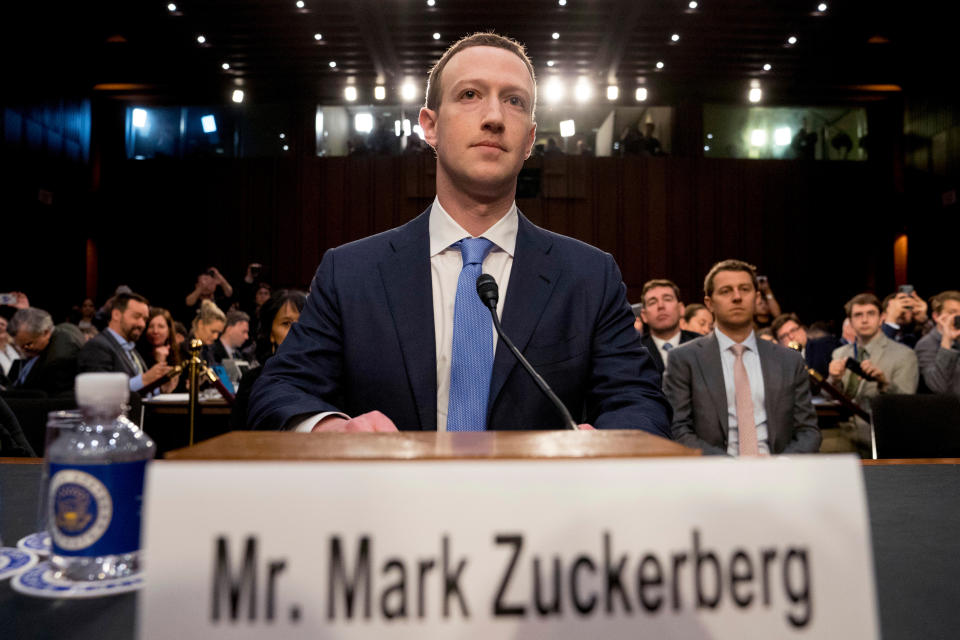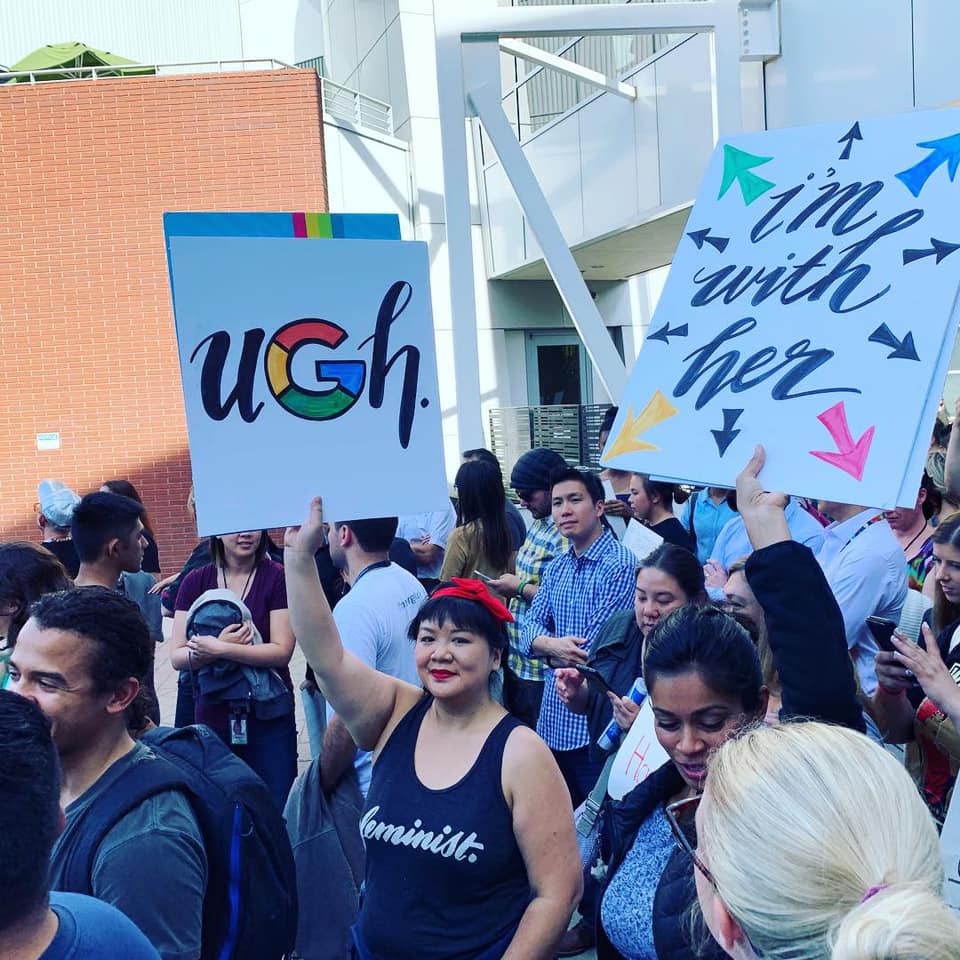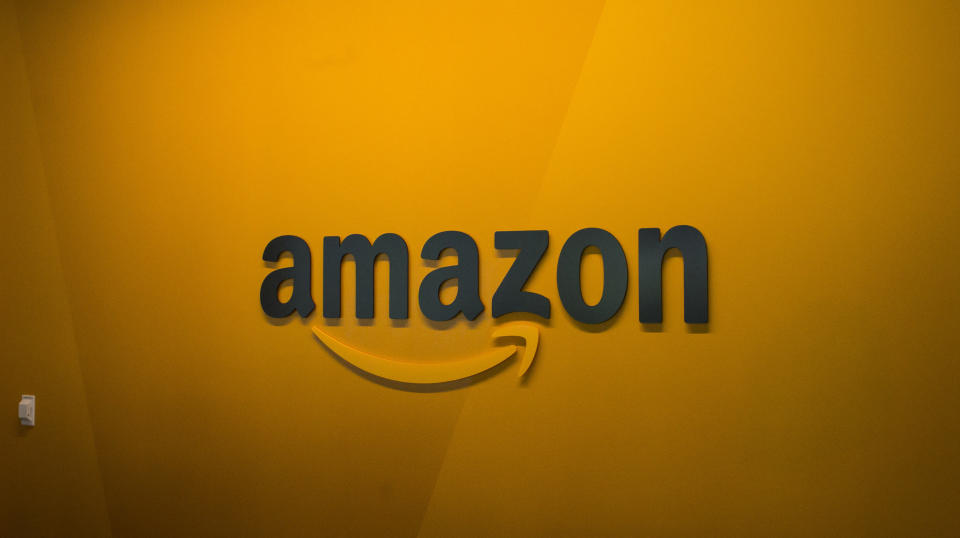'We've hit an inflection point': Big Tech failed big-time in 2018

2018 will be remembered as the year the public’s big soft-hearted love affair with Big Tech came to a screeching halt.
For years, lawmakers and the public let massive companies like Facebook, Google, and Amazon (AMZN) run largely unchecked. Billions of people handed them their data — photos, locations, and other status-rich updates — with little scrutiny or question. Then came revelations around several high-profile data breaches from Facebook (FB): a back-to-back series of rude awakenings that taught casual web-surfing, smartphone-toting citizens that uploading their data into the digital ether could have consequences. Google (GOOG, GOOGL) reignited the conversation around sexual harassment, spurring thousands of employees to walk out, while Facebook reminded some corners of the U.S. that racial bias, even in supposedly egalitarian Silicon Valley, remained alive and well. And Amazon courted well over 200 U.S. cities in its gaudy and protracted search for a second headquarters.
“I think 2018 was the year that people really called tech companies on the carpet about the way that they’ve been behaving conducting their business,” explained Susan Etlinger, an analyst at the San Francisco-based Altimeter Group. “We’ve hit an inflection point where people no longer feel comfortable with the ways businesses are conducting themselves. At the same time, we’re also at a point, historically, where there’s just so much more willingness to call out businesses and institutions on bigotry, racism, sexism and other kinds of bias.”
A stunning series of scandals for Facebook

The public’s love affair with Facebook hit its first major rough patch in 2016 when Russian trolls attempted to meddle with the 2016 U.S. presidential election using the social media platform. But it was the Cambridge Analytica controversy that may go down in internet history as the start of a series of back-to-back, bruising controversies for the social network, which for years, served as the Silicon Valley poster child of the nouveau American Dream. If you had a solid idea, excellent timing and execution, you, too, could pull off what Mark Zuckerberg did — or so Silicon Valley wanted wannabe entrepreneurs to believe.
The Cambridge Analytica scandal, in which the voter profiling company effectively harvested the data of up to 87 million Facebook users as part of an effort to elect President Donald Trump, put a serious crack in Facebook’s visage as a company that could seemingly do no wrong in a way that even the 2016 U.S. presidential election failed to do.
“Imagine being told for 10 years that you’re geniuses,” explains Gina Bianchini, CEO and founder of Mighty Networks. “Imagine going from no revenue to $50 billion in revenue and then one day, you know, it goes from essentially having nearly nothing that sort of sticks to literally everything being a problem. I mean, that is whiplash.”
Following signs of Russian interference with the 2016 U.S. presidential election, the Cambridge Analytica amplified scrutiny of Big Tech and calls for increased industry regulation. In Facebook’s case, lawmakers like U.S. Democratic Senator Richard Blumenthal, a member of the Senate Commerce, Science, and Transportation Committee, claimed the social network failed to protect confidential user information, which likely violated specific legally binding commitments, as well as basic norms and standards. The scandal also paved the way for other mortifying revelations about Facebook later in the year: further user data breaches, the publication of internal company emails and documents by UK parliament that highlighted Facebook’s competitive streak, and the hiring of Definers Public Affairs, a Republican-aligned public relations firm that conducted opposition research on the company’s critics, including billionaire George Soros.
Public trust in Facebook sank to a new low. According to a survey published by the Pew Research Center in September, 42% of users surveyed took a break from Facebook for several weeks or more, adjusted their privacy settings or outright deleted the Facebook app from their smartphones since March. Pew Research Center surveyed 4,594 randomly selected adults in the U.S. from May through June of this year.
“Heading into 2019 we’re focused on keeping Facebook safe and protecting people’s data, and we’ve already made important progress,” a Facebook spokesperson told Yahoo Finance. That spokesperson pointed to the social network’s recent moves, such as tripling the number of people working on Facebook safety and security to 30,000, tightening its app review process, restricting the data app developers can get and creating a centralized Privacy and Data Use organization solely focused on privacy. “In 2019 we’ll keep improving our privacy controls and do more to make sure people understand how we use data and how they can control it. We’ll also keep asking for feedback — especially hard feedback — to make sure we’re building the tools that people want and need.”
Google, meanwhile, hit upon its own user data scandals. In October, the Mountain View, California, giant announced it would shut down Google+ social network over the next 10 months following revelations of a data breach affecting 500,000 users — a move accelerated after a second software glitch exposed the private profile information of 52 million users. Nevermind that Google+ was a veritable ghost town by that time and that the failed social network never received the same broad adoption as Facebook or the same feverish engagement as Twitter (TWTR). Google, like Facebook, had messed up big-time.
Worse still, it took Google CEO Sundar Pichai four months to finally testify before Congress about the company’s data and privacy practices, following a notorious no-show — signified by an empty seat alongside Facebook COO Sheryl Sandberg and Twitter and Square CEO Jack Dorsey — this September. Although the House Judiciary Committee ultimately blew its opportunity to effectively question Pichai, one of the most powerful people in tech, and turned the three-and-a-half hour testimony into another partisan battle, Pichai’s belated appearance on Capitol Hill reinforced Silicon Valley’s reputation as an arrogant industry that was reluctant to play ball with lawmakers.
Tech diversity hits another serious snag

The struggle for minorities remains all-too-real in Silicon Valley, an industry that upholds and rewards itself for being at the forefront of innovation. But as this year reminded us, when it comes to diversity, not much has changed.
Tech companies including Intel (INTC), Microsoft’s (MSFT), Google (GOOG, GOOGL), (AAPL) and Facebook are still heavily dominated by men. Meanwhile, 83% of tech executives are white, according to the U.S. Equal Employment Opportunity Commission, and African Americans and Hispanic employees each account for fewer than 6% of all employees at companies including Facebook, Microsoft, and Twitter.
Google, in particular, was criticized for paying former Google exec and Android creator Andy Rubin a staggering $90 million to leave after the company learned of sexual harassment accusations by a former girlfriend and Google employee — a controversial move that motivated thousands of Google employees to walk out of the company’s offices in early November.
“It [Google] is not that place for women, it is not that place for people who are differently-abled, it is not that place for people of color,” organizers of the Google employee walkout wrote in an op-ed in New York Magazine’s The Cut. “And to be honest with you, when it’s not that place for those groups, that means that the company is failing everyone.”
Google declined Yahoo Finance’s request for comment for this story. However, in a company post published in November, Pichai apologized and pledged to make several changes, including making arbitration in sexual harassment cases optional, providing more granularity around sexual harassment cases, and expanding the company’s mandatory sexual harassment training.
Meanwhile, the public departure of former Facebook manager Mark Luckie, unfortunately, reminded people that racial bias, even in liberal-leaning Silicon Valley, remains alive and well. In his Facebook post, sent in early November one day before his final day at the social network, Luckie criticized Facebook’s shortcomings as a work culture and as a platform for the black community to communicate, recalling moments of racial discrimination that made him feel like an “oddity” in the workplace.
“I will say that these excuses about why tech companies don’t have diverse hiring and diverse executive ranks and employee ranks has to stop,” adds Etlinger, who emphasizes companies must build a workforce, management bench and company board that accurately reflects the diversity of their users.
HQ2: the ultimate PR stunt

If Amazon proved one thing this year, it’s that it knows how to put on a show.
The Seattle tech giant’s 14-month search for a second U.S. headquarters remains one of the most fascinating business stories of the year and another telling indicator of Amazon’s corporate clout. In reviewing 238 proposals from cities across North America, the Seattle tech giant enabled a “Hunger Games”-like bidding war.
“The Amazon HQ2 competition was a con and an abuse of the commonwealth, providing the wealthiest man in the world [Jeff Bezos] with mass tax credits, free data, and unlimited expansion potential,” contends Scott Galloway, a professor of marketing at NYU Stern School of Business and author of the book, “The Four: The Hidden DNA of Amazon, Apple, Facebook, and Google.” “Amazon successfully created an offline algorithm that pitted cities against one another, occupying headlines of almost every major newspaper and news program while soaking up taxpayer’s dollars, highlighting the perversion of our nation at the hands of big tech.”
Certainly, prospective cities pulled out all the stops: Arizona representatives, for instance sent Amazon a 21-foot cactus, a Pittsburgh sandwich chain offered to feed every Amazon employee, and the city of Stonecrest, Georgia, even offered to build a new city called “Amazon” where Bezos could serve as mayor “for life.”
Ultimately, Amazon chose two obvious locations, opting to split HQ2 into two large regional offices in Queens, New York and Arlington, Virginia with a smaller campus in Nashville, Tennessee.
“I think in hindsight, everyone should have guessed that Amazon was not going to end up in a tertiary city,” says Dave Hendricks, CEO and founder of Vertalo, a stakeholder registry and compliance platform for regulated security token offerings, who followed Amazon’s HQ2 search with interest. “I think it makes tremendous sense for Amazon to be close to Washington DC, where Jeff Bezos owns the Washington Post and where they need to be lobbying. I think there are very very few Americans that have the workforce that is ambitious and wants to strive to work at an Amazon. Most cities are just not that big enough to provide that many candidates.”
And while no one could argue that Amazon didn’t win in the end, the company’s dog and pony show shined an unflattering spotlight on how Amazon will benefit thanks to massive economic incentives.
Perhaps even better for Amazon, the ever-savvy Bezos can now use the data from all those losing cities to inform Amazon’s business and future expansion. In soliciting in-depth proposals from local officials in 238 cities across the U.S., Amazon now likely has an unprecedented level of data about those markets which it can leverage in the future as it tightens the screws further on its already-vast network of distribution centers to outcompete other ecommerce players and brick-and-mortar stores.
But if there’s one thing to be gleaned from this year’s tempestuous year in tech, it’s that the public should shoulder some of the blame, as well — not just for say, blindly handing over their data but for essentially shrugging its shoulders when controversies like Cambridge Analytica emerge. Sure, some users have weaned themselves off some services like Facebook in protest, but many more remain loyal, probably out of sheer convenience.
“Facebook displayed a lack of moral code and general competence this past year, bearing juvenile reactions to adult problems,” Galloway pointed out. “However, the guilty party here is us. We don’t hold Facebook and its executives accountable, blindsided by the manicured personas of its leaders.”
If we don’t hold these companies — and their executives, employees, and boards — accountable, then how can we expect them to change for the better?
—
JP Mangalindan is the Chief Tech Correspondent for Yahoo Finance covering the intersection of tech and business. Email story tips and musings to jpm@oath.com. Follow him on Twitter or Facebook.
More from JP:

 Yahoo Finance
Yahoo Finance 
